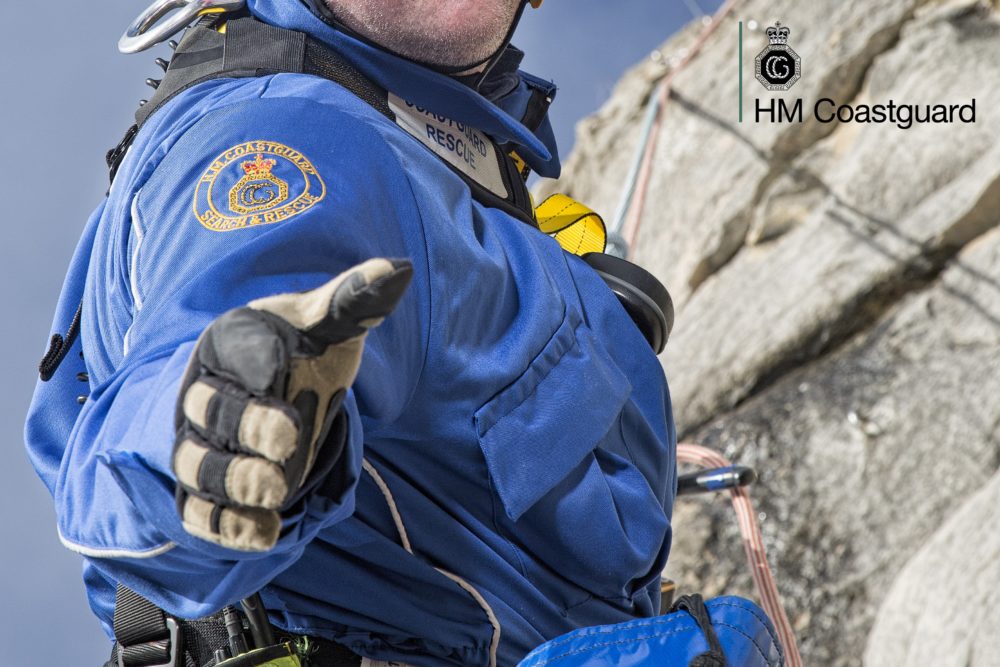Community
Tilhill Forestry staff are encouraged and supported with their efforts in volunteering with their local community.
We spoke to Forest Manager Steven Miller about his role as a volunteer as a Coastguard with HMCG. Her Majesty’s Coastguard is a section of the Maritime and Coastguard Agency responsible for the initiation and co-ordination of all maritime search and rescue within the UK Maritime Search and Rescue Region.
“It is the discipline it gives you to see a task through no matter how hard it is.”
What inspired you to become a volunteer coastguard?
I spend a lot of time fishing on the water and from the shore and a friend suggested I join the Coastguard as I spend so much time on or near water. I followed up by asking my District Manager John Little and our Forestry Director Tim Liddon for approval to volunteer and they gave me the green light. I have been a Coastguard now for three years.
What was the training experience like?
The training is very intense. Depending on the type of team you are depends on what extra training you are given. We are all trained in search and rescue, which is land/shore based search and water rescue from the shore, shallow water or fast flowing water and storm conditions.
We are also trained in first aid QA Level 3 Certificate in First Response Emergency Care (RQF). There are further disciplines depending on your location, which can be mud or cliff rescue.
The Oban team I am part of is a cliff team. This means we are trained to carry out cliff rescues using ropes and for vertical access recoveries from boats etc. As a cliff team, we can be flown anywhere within our sector to assist other teams. We train weekly on any of the disciplines with extra training put in as and when required. We are required to keep up our operation technicalities which is usually means revalidation every 1, 2 or 3 years depending on the skill. We are also trained to work with HMCG helicopters to help with recoveries or patient transfers and the current fleet of Royal National Lifeboat Institution (RNLI) lifeboats.
What are the benefits you feel it brings to your role at Tilhill Forestry?
Safety is the first principle in Tilhill Forestry as it is in HMCG. Superior first aid skills are very useful but hopefully never needed to be used. More than that, it is the discipline it gives you to see a task through no matter how hard it is. Team work in HMCG is also paramount and that is a great transferable skill into the workplace.
What’s the best thing about being a volunteer coastguard and how does it involve the community?
My coastguard team are my second family, a support network. The camaraderie is second to none. What we go through can be quite harrowing and in the same breath very rewarding. And you stand by your colleagues. We are drilled to carry out operations safely and efficiently and look after yourself and your team. It therefore brings you a sense of togetherness that I have not experienced anywhere else.
Photos: MCA accredited





